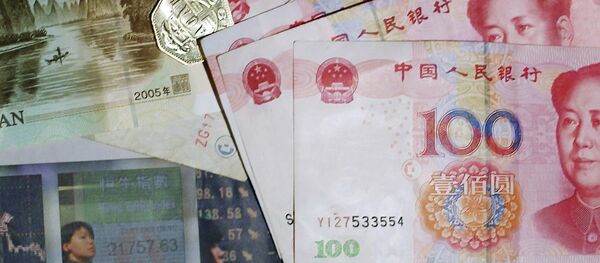The People’s Bank of China (PBC) has been lowering the yuan against the dollar over the past three days, fueling suspicion that Beijing is attempting to unfairly sustain falling industry exports.
In an analysis piece published on his social media account on Wednesday, Beijing-based economist Ma Guangyuan stressed that government support would extend beyond simple export profit figures.
“An effective devaluation of an overvalued yuan will not only benefit stable growth of the Chinese economy, but also maintain the yuan’s competitiveness,” Ma wrote.
China’s year-on-year export value dropped by 8.3 percent in July, despite projections of a 1-percent slowdown.
The economist stressed that, given the losses the Chinese economy has suffered this year, the yuan’s depreciation is a necessary measure.
Ma also suggested that the PBC's move allowed Beijing to bring its currency closer to a realistic market exchange rate.
In an interview with RIA Novosti earlier, NLI Research Institute's leading researcher Kokichiro Mio projected the yuan’s further short-term drop by 0.4 points to 6.8 yuan per dollar.
He added that Beijing’s decision to lower the yuan’s value coincided with the International Monetary Fund’s (IMF) ongoing consideration of including the currency into its so-called basket of supplementary foreign exchange reserve assets.
The basket, known as Special Drawing Rights (SDR), consists of US dollars (valued at 41.9 percent), euros (37.4 percent), British pounds (11.3 percent) and the Japanese yen (9.4 percent) as of the latest IMF review in 2010.
The Washington-based IMF conducts its key international currency review every five years.



